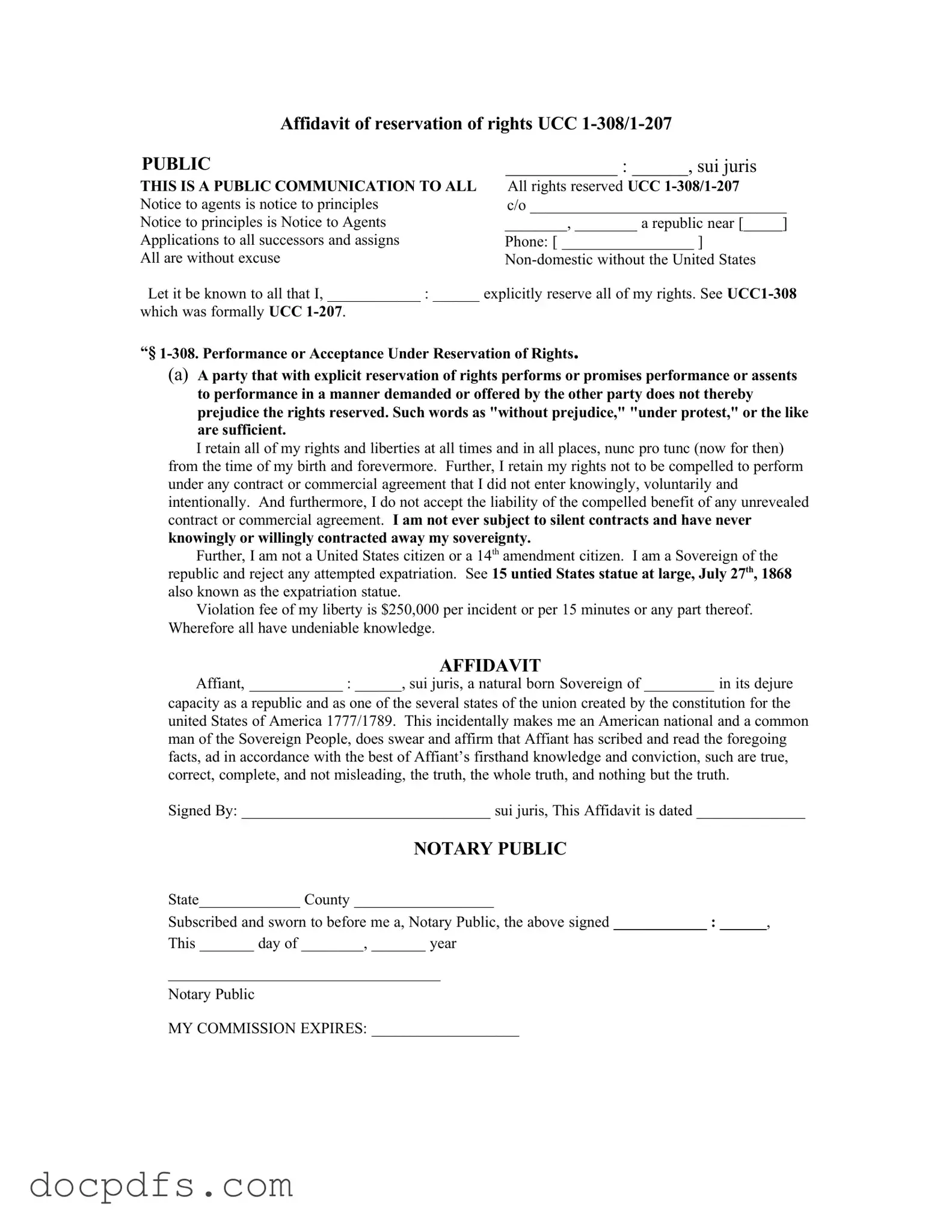Ucc 1 308 Template in PDF
The UCC 1-308 form, also known as the Affidavit of Reservation of Rights, serves as a public declaration for individuals wishing to explicitly reserve their rights in legal and commercial contexts. This form allows a person to assert their sovereignty and maintain their rights without prejudice, even when engaging in agreements or contracts. Understanding the implications of this form can be crucial for those who seek to protect their liberties in various legal situations.
Open Ucc 1 308 Editor Now

Ucc 1 308 Template in PDF
Open Ucc 1 308 Editor Now

Open Ucc 1 308 Editor Now
or
⇓ Ucc 1 308
Finish this form the fast way
Complete Ucc 1 308 online with a smooth editing experience.